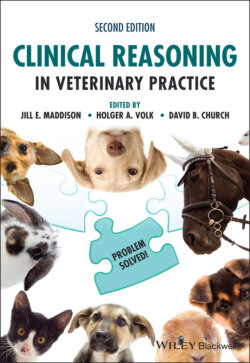Читать книгу Clinical Reasoning in Veterinary Practice - Группа авторов - Страница 102
Case outcome
ОглавлениеColin’s diarrhoea did not improve during a properly performed diet trial of a ‘novel’ protein‐source diet. His owners had a limited budget and were keen to perform a step‐by‐step investigation of his diarrhoea. Faecal testing was performed initially due to the increased chance of infectious diarrhoea at his age and also with the knowledge that he was originally from a multi‐cat household where other cats have had diarrhoea in the past.
Faecal parasitology, Zn sulphate flotation for Giardia cysts and Tritrichomonas PCR were performed. Only the Tritrichomonas PCR was positive.
Treatment was discussed with Colin’s owners. Some cats with Tritrichomonas infection do not require treatment if their diarrhoea is relatively mild as the disease usually resolves over time. However, resolution may take many months, and cats may continue to excrete the organism even once diarrhoea has resolved. Colin’s owners were keen to treat him, and he was given ronidazole at a dose of 25 mg/kg once daily for 2 weeks. His diarrhoea resolved and did not recur.
Ronidazole should be used with caution and with informed owner consent as it may cause neurological and GI side effects. It is not licensed in most small animal markets and may not be readily available in formulations suitable for cats without the use of a licensed compounding pharmacy.
